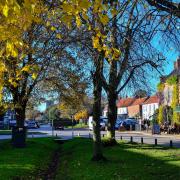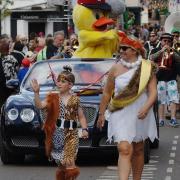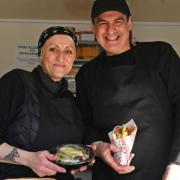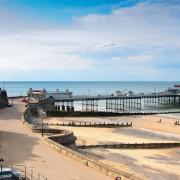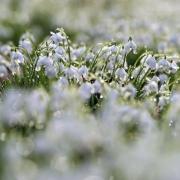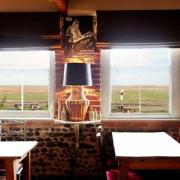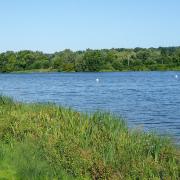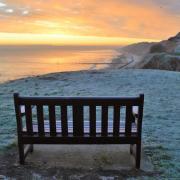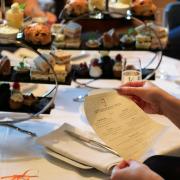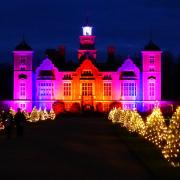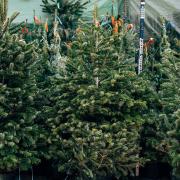It’s a favourite Broads destination for thousands of excited schoolchildren... explore how nature works at the house on the hill

Excited young voices echo around the rooms and gardens of the hilltop house which stares out over an idyllic mill-freckled Broads landscape.
Schoolchildren are having fun learning about bugs, birds, climate, history and the rich countryside around them.
How Hill has a grandstand view of the boats gliding along the River Ant and open marshes under the ever-changing umbrella of a huge Norfolk sky.
The neat thatched house is a former family home with a surprising link to an Olympic gold medal glory.
But it is best known for its role for the past 50 years - as an environmental education centre, enjoyed by generations of youngsters getting a taste of nature at first hand rather than from a text book.

Over the past 25 years more than 100,000 children, on day and residential visits, have sampled activities including dyke dipping, nature trails, dissecting owl pellets, making dens and trying their hand at thatching.
Behind the fun is a chance to learn about the local countryside and the challenges facing it, from loss of habitat and the pressure of tourism, to the threat of rising sea levels from climate change.
They are the kind of lessons that linger in the memory way beyond school days and the reason so many adults are keen to revisit How Hill in later life - often with their own children and grandchildren.
For despite its core role as an outdoor classroom for children, How Hill is also for grown-ups. It hosts adult courses including a week-long adventure learning how to sail a wherry and is a venue for outdoor theatre and family fun days, where parents can share their children's enjoyment and maybe even rekindle their own memories of a How Hill school trip.

How Hill director Simon Partridge says: "Children today don't always get to play in the woods like their parents did. For some, their visit to How Hill is the first time they have seen a swan or been on a boat.
"The Broads is a fantastic environment and these youngsters are the people who will be looking after them in the future, so it is important they appreciate the environment around them."
Youngsters enjoy playing games such as hawks and blackbirds, to learn about the food chain, and the sessions, from pond-dipping to environmental art, also teach key National Curriculum skills from maths and English to biology, history and art, he adds.
How Hill's funding comes from a combination of course fees and generous public donations and legacies - which are vital to running and restoring an historic Grade II listed building.

That history stretches back to the Ice Age glacier which formed the hummock of How Hill as it melted. But the landmark as we know it today began to take shape at the turn of the 20th century when a turn of fate brought a well-to-do family past the landmark spot.
Architect Edward Thomas Boardman, whose firm shaped some of the county's most iconic buildings including London Street and the old Norfolk and Norwich Hospital, spotted the ideal location for a holiday, and later family, home when a wherry trip took them past How Hill.
Mr Boardman designed the stunning house which the family moved into in 1905. Children Joan, Christopher, and Michael and twins Humphrey and Stuart enjoyed an idyllic childhood there exploring the river, fishing and learning to sail.
The sailing prowess of Christopher Boardman provided the Olympic glory in 1936, but the prize was tarnished by the farce of how it was won - by default, having not won a single race - and the man linked to the games, emerging dictator Adolf Hitler. Christopher snubbed the medal ceremony, but the stump of an oak sapling presented to gold medal winners and brought back by a crew member can still be seen in the How Hill grounds.
The family cut its ties with the house when it was put up for sale in the 1960s after their parents' deaths. It was a crossroads moment for How Hill and locals feared it would be turned into marinas or a holiday camp. But it was bought by Norfolk County Council education committee, renovated and opened it on September 17, 1968 as a residential education centre for field study courses, conferences and training events.
The next crisis came in 1982 when cost pressures led county hall to close it and there were moves to sell it as a private convalescent home. But efforts were made to save How Hill for the public - achieved thanks to the intervention of the then Norwich Union insurance group - forerunner of Aviva. The company leased, then gave, the house to a new charitable trust which was formed on April 1, 1984, and still runs it today, supported by a Friends group formed in 1988.
At the original opening famous Norfolk naturalist Ted Ellis said How Hill would provide a "slice of paradise" for its visitors. And people keep coming back for seconds.
More details or events at 01692 678555 or visit howhilltrust.org.uk
How about these 2019 events at the house for all seasons and ages?
- Family fun days
Thatching, dyke dipping, den building, games, crafts, mask and wig-making, plus visit the gardens and the wherry Hathor.
July 31, August 2,6,8 (10am-4pm) £7.50, under-3s free
- Open air theatre
Sense and Sensibility by The Pantaloons.
Sunday August 18, 3pm, £13 adult, £8 child 8-16
- How to sail a wherry
Train on the 1905 pleasure wherry Hathor. Help with crew tasks and take the helm - or just sit back and enjoy the vintage ride.
Full-board accommodation at How Hill, August 27-31, £425
- Gardens of East Norfolk
Use How Hill as a base for visiting gardens rarely open to the public, with special evening speakers and full board accommodation.
August 19-22, £375
- Tea room
Open daily for homemade scones, cakes and sandwiches during the summer holidays.
July 27-September 8, 11am-4pm
- Gardens
Visit the 'secret gardens' created by the original house owners, the Boardman family, in the 1920s.
Open daily. Guided tours by arrangement




